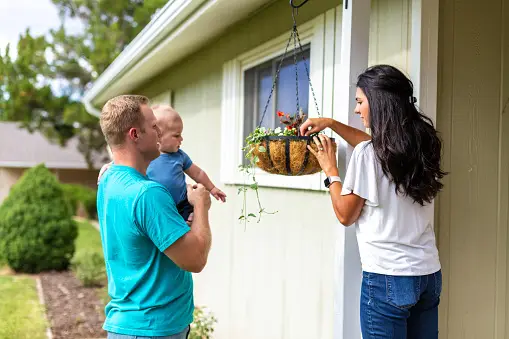Narcissism is characterized by self-importance, a deep need for excessive attention and admiration, failed relationships, and a lack of empathy for others. It is often associated with Narcissistic Personality Disorder (NPD), a mental health condition wherein individuals display a pattern of grandiosity, a need for admiration, and a lack of empathy, beginning in early adulthood and present in various contexts. Navigating co-parenting with a narcissist can feel like going through a minefield. The constant need for validation, manipulation, and selfish behavior can make the simplest interactions challenging. But fear not; you’re not alone. In this guide, we’ll explore effective strategies for staying sane while co-parenting with a narcissist.
What is Co-Parenting?
Co-parenting is a parenting arrangement in which divorced or separated parents share the responsibilities of raising their children, even though they are no longer in a romantic relationship. In a co-parenting arrangement, parents actively make decisions about their children’s lives, including education, healthcare, discipline, and other activities.
The key aspect of co-parenting is cooperation and collaboration between the parents for the well-being of their children. While the specific details of co-parenting arrangements can vary depending on the circumstances of the separation and the children’s needs, the underlying principle is that both parents remain involved in their children’s lives and work together to provide them with love, support, and stability.
Successful co-parenting requires effective communication, mutual respect, and a willingness to put the children’s needs above any conflicts or arguments between the parents. It can be a challenging arrangement, especially if there are conflicts or issues from the past relationship. Still, with patience and effort, co-parenting can allow children to maintain strong relationships with both parents and thrive in a supportive environment.
Reasons For Co-parenting
Despite its challenges, co-parenting is often pursued for several compelling reasons, like the well-being and development of the children involved. Here are some key reasons why co-parenting is chosen by many separated or divorced parents:

Promotes Stability and Consistency:
Co-parenting provides children with stability and consistency by letting them maintain meaningful relationships with both parents. This arrangement minimizes disruptions to their daily routines and allows for a more easy transition between households.
Fosters Emotional Security:
Children benefit emotionally from having ongoing relationships with both parents. Co-parenting ensures that children feel loved, supported, and emotionally secure, as they have access to the presence of both parents in their lives.
Encourages Positive Role Modeling:
Co-parenting allows parents to demonstrate healthy conflict-resolution skills, effective communication, and cooperation, even in the face of challenges. Children learn valuable collaboration, empathy, and strength lessons by seeing their parents working together.
Supports Academic and Social Development:
Research indicates that children with consistent parental involvement tend to perform better in school and exhibit better social relationships. Joint parenting ensures that children receive support and encouragement from both parents in their educational pursuits and social interactions.
Strengthens Parent-Child Bonds:
Co-parenting provides opportunities for parents to strengthen their bonds with their children by actively participating in their lives and going to school events, activities, and special occasions. This involvement fosters a deeper connection and trust between parents and children.
Promotes Healthy Coping Mechanisms:

Co-parenting teaches children valuable coping skills by showing that challenges can be overcome through teamwork, communication, and mutual support. This coping mechanism prepares children to navigate life’s challenges more effectively as they grow older.
Mitigates Parental Alienation:
Co-parenting reduces the risk of parental alienation, where a child’s relationship with one parent is undermined or severed due to negative influence or manipulation by the other parent. By keeping open lines of communication and cooperation, co-parents can prevent alienation and preserve the child’s right to a meaningful relationship with both parents.
Legal and Financial Considerations:
Sometimes, court orders or legal agreements mandate co-parenting. Additionally, sharing parenting responsibilities can reduce the financial burden of raising children, as both parents contribute to the costs associated with childcare, education, and healthcare.
The Impact on Co-Parenting
Co-parenting with a narcissist can be emotionally and mentally challenging. Their need for control and admiration can lead to power struggles and manipulation. Additionally, their lack of empathy can make it difficult to prioritize the needs of the children. The narcissist’s constant need for control and admiration lies at the heart of the challenge. Every interaction becomes a battleground for dominance, with the narcissistic co-parent employing manipulative tactics to assert their superiority. Whether it’s undermining your authority, gaslighting your perceptions, or changing the truth to suit their narrative, their constant pursuit of control can leave you feeling powerless.
Moreover, their lack of empathy adds another layer of complexity to the co-parenting dynamic. While you may prioritize the needs and well-being of your children, the narcissistic co-parent is often unable or unwilling to do the same. Their inability to empathize with others means they may disregard the emotional needs of the children, viewing them merely as extensions of themselves rather than individuals with their feelings and experiences. As a result, co-parenting decisions may be skewed in favor of the narcissist’s desires, with little regard for the children’s best interests.
This combination of control-seeking behavior and lack of empathy creates a perfect storm of power struggles and manipulation within the co-parenting relationship. Every decision, from visitation schedules to educational choices, becomes a battleground where the narcissistic co-parent seeks to assert their strength and maintain their sense of superiority.
Strategies for Maintaining Your Sanity
Navigating the complex terrain of co-parenting with a narcissist demands a multifaceted approach that encompasses not only practical strategies but also emotional resilience and self-care. Here, we delve deeper into comprehensive strategies aimed at safeguarding your sanity while navigating the challenges posed by a narcissistic co-parent:
Establish Firm Boundaries:
Setting clear and non-negotiable boundaries is foundational when parenting with a narcissist. These boundaries serve as protective barriers against manipulation and emotional exploitation. Communicate your boundaries to the co-parent, outlining unacceptable behaviors and the consequences for crossing these lines. Consistency in upholding these boundaries is key, reinforcing that your well-being and children’s are non-negotiable.
Strategic Communication:
Adopting a strategic approach to communication is vital when dealing with a narcissistic co-parent. Keep interactions brief, focused on matters directly related to the children, and devoid of emotional entanglements. Utilize written forms of communication, such as emails or text messages, to maintain a documented record of exchanges, thereby minimizing opportunities for gaslighting or manipulation.
Thorough Documentation:
Maintaining meticulous records of interactions with the narcissistic co-parent serves multiple purposes. It provides concrete evidence during legal proceedings and serves as a reality check, affirming the validity of your experiences and emotions. Document instances of manipulation attempts to undermine your parental authority or any behavior that could potentially harm the children.
Seek Support Networks:
Dealing with the relentless demands and manipulations of a narcissistic co-parent can be isolating and emotionally draining. Establishing a robust support network comprising understanding friends, family members, or support groups for individuals in similar situations can provide invaluable validation, empathy, and practical guidance. A therapist specializing in family dynamics or narcissistic abuse can offer additional support and coping strategies.
Prioritize Child Well-Being:
Despite the challenges posed by the narcissistic co-parent, maintaining a steadfast focus on the well-being of your children is paramount. Shield them from the toxic dynamics between you and the co-parent as much as possible, providing them with a safe and nurturing environment. Encourage open communication with your children, validating their emotions and experiences and reassuring them of your unwavering love and support.
Self-Care Rituals:
Cultivating a regimen of self-care practices is essential for preserving your mental and emotional well-being amidst the tumult of joint parenting with a narcissist. Dedicate daily time to engage in activities that replenish your spirit, whether exercise, meditation, creative pursuits or simply indulging in quiet solitude. Prioritize activities that nurture your self-worth and reaffirm your identity outside the co-parenting dynamic.
Empowerment Through Knowledge:
Educate yourself about narcissistic personality traits and manipulation tactics to gain a deeper understanding of the dynamics at play. With knowledge, you can recognize and counteract manipulative behaviors, maintain perspective, and reclaim a sense of agency in your co-parenting journey. Remember, knowledge is power, and understanding the mechanisms of narcissistic behavior can empower you to navigate the challenges more effectively.
Legal Safeguards:

In cases where co-parenting with a narcissist escalates to legal proceedings, ensure that you have legal representation to protect your rights and those of your children. Familiarize yourself with relevant laws and regulations about custody arrangements, and address any legal loopholes or vulnerabilities in your agreement.
By implementing these comprehensive strategies, you can fortify yourself against the emotional onslaught of raising a child with a narcissist while prioritizing the well-being of yourself and your children. Remember, while the journey may be arduous, you are not alone, and there is hope for healing and resilience on the horizon.
Real-Life Examples
To illustrate these strategies in action, let’s consider a hypothetical scenario:
Sarah is co-parenting with her ex-husband, John, who exhibits narcissistic traits. Despite their divorce, John continues to try to control and manipulate Sarah, making co-parenting a constant struggle. Sarah decided to implement the strategies outlined above:
– She establishes clear boundaries with John, refusing to engage in arguments or emotional manipulation.
– Sarah keeps communication focused on their children’s needs, avoiding personal topics or discussions about their past relationship.
– She diligently documents all interactions with John, including instances of manipulation or attempts to undermine her parental authority.
– Sarah seeks support from a therapist who helps her develop coping strategies and provides validation for her experiences.
– Finally, Sarah prioritizes self-care, making time for hobbies, exercise, and relaxation to maintain her mental and emotional well-being.
Despite the challenges, Sarah finds that implementing these strategies helps her maintain her sanity and protect her children from the negative effects of co-parenting with a narcissist.
Conclusion: You’re Not Alone
Co-parenting with a narcissist is undoubtedly challenging, but it’s essential to remember that you’re not alone. By understanding narcissism, setting boundaries, seeking support, and prioritizing self-care, you can navigate this difficult terrain while protecting your sanity and well-being. Remember, you deserve peace and happiness for yourself and your children.
Oluwatukesi Joseph is a Content Writer at LOBF. He holds a Master’s Degree from Obafemi Awolowo University in Architecture, However, his love for writing and content creation has transitioned him into the writing and content marketing field. He has gained relevant certification from other notable Universities where he developed a strong foundation in content marketing and writing.
Outside of work, Joseph enjoys spending quality time with friends and family and playing chess, which he finds often complements his professional pursuits. Joseph is excited to be part of the dynamic team at The Law Office of Bryan Fagan, contributing his expertise to spreading the good news of LOBF to Families across Texas.




